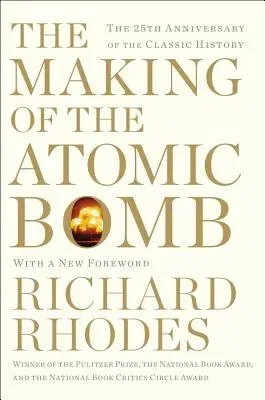The definitive history of nuclear weapons and the Manhattan Project.
From the turn-of-the-century discovery of nuclear energy to the dropping
of the first bombs on Japan, Richard Rhodes's Pulitzer Prize-winning
book details the science, the people, and the sociopolitical realities
that led to the development of the atomic bomb.
This sweeping account begins in the 19th century, with the discovery of
nuclear fission, and continues to World War Two and the Americans' race
to beat Hitler's Nazis. That competition launched the Manhattan Project
and the nearly overnight construction of a vast military-industrial
complex that culminated in the fateful dropping of the first bombs on
Hiroshima and Nagasaki.
Reading like a character-driven suspense novel, the book introduces the
players in this saga of physics, politics, and human psychology--from
FDR and Einstein to the visionary scientists who pioneered quantum
theory and the application of thermonuclear fission, including Planck,
Szilard, Bohr, Oppenheimer, Fermi, Teller, Meitner, von Neumann, and
Lawrence.
From nuclear power's earliest foreshadowing in the work of H.G. Wells to
the bright glare of Trinity at Alamogordo and the arms race of the Cold
War, this dread invention forever changed the course of human history,
and The Making of The Atomic Bomb provides a panoramic backdrop for
that story.
Richard Rhodes's ability to craft compelling biographical portraits is
matched only by his rigorous scholarship. Told in rich human, political,
and scientific detail that any reader can follow, The Making of the
Atomic Bomb is a thought-provoking and masterful work.

